Irreverent, amusing, impertinent, erotic, but extremely refined. The painting of Shafei Xia is elegant and refined, like that of the Japanese shunga or the Chinese erotic paintings of the 1800s, though it also reminds us of the cultured narcissism of Luigi Ontani, with its citations and oriental overtones.
The main theme of this series of recent works, made with a very particular technique – all watercolors on sandalwood paper stretched on canvas – is
love, experienced as desire, jealousy and violence, represented explicitly or symbolically, depending on the case, as an omnipresent feature of the work
of Shafei. The artist often represents herself as a tiger, a symbol of power and instinctive force, which in Chinese alchemy indicates the active principle, energy as opposed to the passive principle. In the work Welcome to my show, while all
the musicians gravely play their instruments, a tiger hugs the bass violin (an instrument usually played by men) while a naked woman conducts the orchestra, showing the audience her ample backside. An ironic swapping of roles between men and women and between human beings and animals, inside a setting – that of the concert hall – that has great importance in the history of western art. There is nothing boring or ordinary in Shafei Xia’s painting: the artist inserts something unexpected in her colorful depictions, forcing us the peer behind the curtains or to look carefully into porcelain plates, where beside tomatoes and grapes (which symbolize sexuality, fertility and abundance) we find fish bones, a sign of danger, while a couple joins in a tender embrace. It is told that Picasso, in 1945, said to Brassaï, showing him the erotic prints of Utamaro: “Art is never chaste. Where
it is chaste, it is not art,” remarking on how the sexual organs were clearly visible, yet stripped of any vulgarity. The same can be said for the works of Shafei Xia, which though speaking of sexual desire and appetites, never lose their delicacy in the treatment of faces, in the description of nude bodies, in the movements and poses of animals and the representation of settings. Because, as Shafei told me regarding the concert: “when everyone plays seriously, I am the tiger, but I am also the orchestra conductor who creates problems. To break the boredom.”
Text by Maura Pozzati
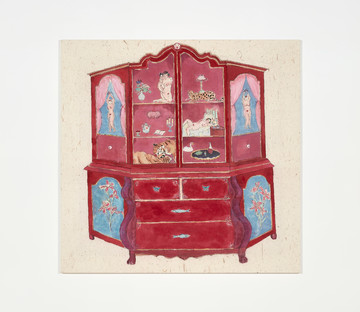
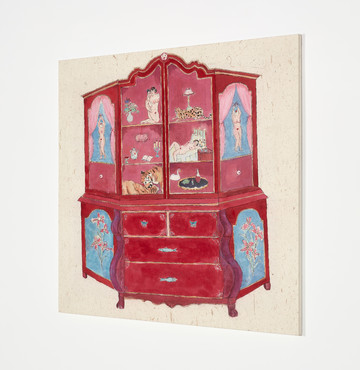
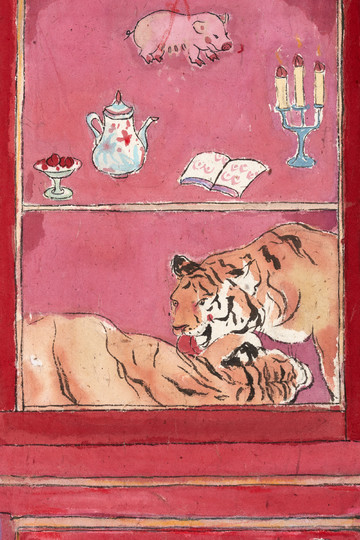
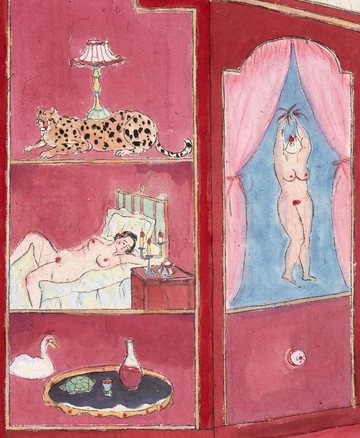
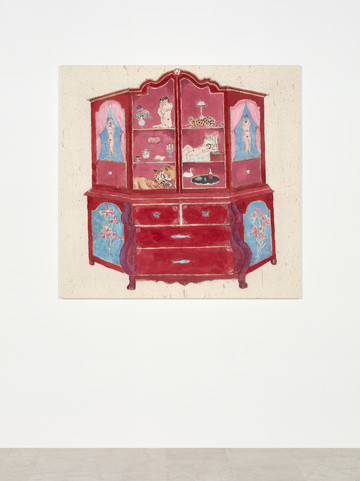
Shafei Xia
Il mondo dentro, 2022
1/5
watercolor on sandal paper mounted on canvas, cm.117,5x120,5
